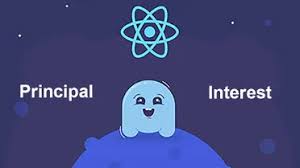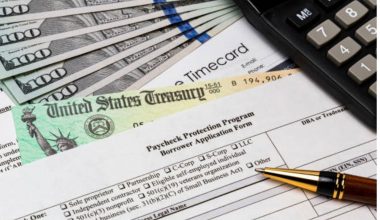Interest is a fee charged by a creditor in exchange for lending money. So, it’s necessary to know the difference between principal and interest (principal vs interest) in the payments of a mortgage principal and pay off the interest. Continue reading for a detailed comparison of the two.
Principal vs Interest
The amount owed on a loan or mortgage is referred to as principal, and it is also known as balance or capital. The lender charges the borrower interest in order to facilitate the borrowing. Because interest is calculated as a proportion of the outstanding balance, or principal, your loan balance and the interest charged is inextricably linked.
Paying off principal rather than interest has the advantage of reducing your debt and thus resulting in less interest being charged in the future. Paying interest rather than principal has the advantage of requiring a smaller payment, which can help with cash flow. The amount you owe in debt is called the principal, while the cost of borrowing that money is called interest. They’re linked since the amount you owe and the amount of interest you pay are directly proportional.
Keep reading for a detailed comparison of the two.
Interest vs Principal: Definition
Below is the exact meaning of both interest and principal with their payment.
Interest
Interest is a cost paid to a lender for borrowing money, which is usually calculated using an Annual Percentage Rate (APR). The annual percentage rate (APR) is a percentage of the loan’s total principal balance.
Payment of Interest
The sum of each payment that goes toward interest on a loan is known as the interest payment. Usually, these payments are made in intervals.
Principal Stability
The principal balance is the unpaid portion of the loan, minus the interest.
Payment of Principal
The amount of each payment that goes toward the principal balance is known as the principal payment.
Principal vs Interest: When Is It More Profitable for the Payments to Be Mortgaged on Interest Rather Than Principal?
If you want to keep your monthly payments low and maintain your cash flow, paying solely interest instead of principle is a good option. On practically all loans, interest payments are necessary and must be met in order to stay within the lender’s mortgage terms. As a result, it’s critical that you pay your mortgage interest on schedule to prevent technically falling behind.
While paying the interest is crucial, if your loan was taken on a capital payback basis, you must also pay the principal to remain in good standing with your mortgage lender.
Principal vs Interest: When Is It Better for the Payments Mortgage Principal Rather Than Interest?
When it comes to lowering your interest rate in the future, paying principal is preferable to paying only interest. This is because, as mentioned in our interest rate definition article, the rate of interest depends on your remaining mortgage balance. Additional principal payments help you reduce your outstanding balance and, as a result, the amount of interest you pay on your mortgage. This has major benefits because each overpayment, or principal payment, lowers your borrowing expenses and brings you nearer to paying off your mortgage.
Principal vs Interest Mortgage
Check the total monthly payment mentioned on the written calculations you receive when contemplating a mortgage offer. Many homebuyers make the mistake of focusing solely on the principal and interest payment, which leaves them with an unpleasant surprise when they discover their total monthly payment is significantly higher.
Advantages of Making Additional Mortgage Payments
Additional principal payments only serve to shorten the term of the loan (since your payment is fixed). Of course, paying more principal saves money because it essentially shortens the loan term and allows you to quit making payments sooner than if you only made the minimum payment.
So, how does paying extra principal on a mortgage affect things?
#1. Interest Savings
Making extra principal payments every month will substantially decrease your interest payments over the life of the loan because calculations are based on the remaining loan balance. You reduce the principal sum and interest charged on it by paying more principal every month.
Unlike fixed-rate mortgages, adjustable-rate mortgages (ARMs) reset after a defined period of time, depending on the loan arrangement. Paying down more before the reset period enhances your equity and saves you money on interest. As the equity in the home grows, it raises the odds of refinancing out of a variable rate loan.
#2. Reduce the Length of the Loan
Increasing your main payments will decrease your mortgage term and allow you to develop equity quickly. You’ll have fewer total payments to make because your amount is being paid down faster, resulting in further savings.
Principal vs Interest: How to Make Your Mortgage Payments Quickly
What are your plans now that you know the value of paying extra principal on your loan? Take a look at these suggestions for paying off your mortgage faster.
#1. Consider Making a One-Time Payment
Have you recently received a huge commission check from your employer? Have you ever received an inheritance? In any event, putting these “unexpected” dollars toward your mortgage is always a good idea.
#2. Increase Your Payment Frequency.
It could be one extra mortgage payment per year, two extra mortgage payments per year, or a monthly additional payment. If you make these extra payments for a long time, you’ll likely be able to reduce your term by several years
#3. Your Payments Should Be Rounded Up.
You may be able to round up your mortgage payments to the next highest $100 figure, depending on your budget. Pay $2,000 rather than $1,000, or $1,500. Putting this technique into action won’t cost you a fortune, but it will help you buy a home faster.
Principal vs Interest: The Advantages of Paying off Your Mortgage Early
#1. Manage Your Other Debts
Now is the time to be debt-free forever. Credit cards, personal loans, car loans, and school loans are all examples. Paying off your mortgage early allows you to focus on other types of debt and improve your overall financial situation.
#2. Spend Less Money
Consider not having to make a mortgage payment. You’d have more freedom to travel, try new interests, or maybe retire sooner than you had planned. It’s remarkable how much more flexibility you have in your budget when you don’t have to factor in a mortgage payment.
#3. Peacefulness
You will be less concerned about housing market issues. Once you’ve paid off your mortgage, you won’t have to worry about rising home prices. There’s also the peace of mind that comes with knowing your family is safe when monetary crises arise.
Principal vs Interest: There Are Four Options for Paying the Extra Mortgage Principle
Consider your overall financial goals before starting to make extra principal payments on your mortgage. Think about how long you intend to stay in the house. Examine any money you could need in the future, as well as any present bills you’re still paying off.
What are the alternatives, and what are the potential benefits?
#1. Make a Market Investment.
Instead of relying on how long you anticipate staying in the home, you could make more money by using more principle payments and investing that money. Consider how long you intend to stay in your current residence. If you won’t see the benefit of making more payments before selling the house, investing the money you would have spent on it might be a better option.
#2. Lower Your Interest Rate by Refinancing.
It may seem unusual to avoid paying additional principal but rather refinancing your mortgage, but it may save you more money and allow you to keep the extra money you’d spend toward your principal for other purposes. The notion is that you might be able to reduce your existing interest rate without having to adjust your term. Your break-even point may arrive sooner than you expect.
#3. Reserve Funds for Hard Times
Make an emergency fund. We recommend accumulating three to six months’ worth of living expenses in case you lose your job or have unforeseen bills. You could jeopardize your mortgage if you don’t have those financial reserves in place, which includes the extra money you worked so hard to put toward it if you’re getting additional mortgage payments.
#4. Clear All Credit Card Debt
Unlike Americans that struggle with credit card debt, it’s likely that you don’t have enough money to make extra payments on your home. Because credit card interest rates are far higher than house loan interest rates, it makes sense to address credit card debt first. Credit cards have the greatest borrowing costs, with an average variable interest rate of almost 16%
Mortgage Payments Principal vs Interest
Each mortgage payment is made up of two basic parts: principal and interest. The principal refers to the amount of money loaned for your house loan, while the interest is the payment made each month for the loan’s use. Now I’ll describe them in more detail so you can make an informed decision.
Principal Vs Interest: Mortgage Principal Payments
When you sign out on a home loan, the principal is the amount of money you borrow. Simply deduct your deposit from the final selling price of your home to calculate your mortgage principal.
For example, let’s assume you spend $200,000 on a house with a 20% down payment. You’d put $50,000 down on your loan in this case. The remaining $150,000 on the loan would be covered by your mortgage lender. Your principal balance would be $150,000 in this situation.
The most essential factor in determining how much house you can afford is your principal. As soon as you take out a loan, the principal begins to earn interest.
Principal Vs Interest: Mortgage Interest Payments
Interest is the second-largest component of your monthly mortgage payment. It is the amount of money you pay to your mortgage lender in trade for a loan. Some providers use an annual percentage rate to calculate and decide your mortgage rate (APR). The annual percentage rate (APR) is the amount of interest you pay on your loan each year; which includes your mortgage rate as well as fees and expenditures.
For example, if you borrowed $200,000 with a 5% APR, you would pay $10,000 in interest per year. The majority of your monthly bill flows into paying off interest at the start of your loan when (Note: Only if your principal is high).
The interest rate on your loan is determined by several factors. Your credit score, income, down payment, and home region can all affect how much interest you pay. If you’re aware that your credit record isn’t ideal, you should work to improve it so that you can save hundreds of dollars in interest over time.
Is My Principal or Interest Rate Going to Change?
Some mortgage agreements require you to make the same monthly mortgage payment until your loan is paid off. Your monthly payment or the number of years you have to pay your mortgage may fluctuate in two situations: when you choose an adjustable-rate mortgage (ARM) and when you refinance your loan.
#1. Adjustable-Rate Mortgage (ARM)
An ARM is a mortgage in which the interest rate fluctuates with market rates. With an ARM, you’ll usually get a few years of cheap fixed interest rates. Your rates will fluctuate after the promotional period finishes, depending on market factors. If market rates rise, your rate will rise as well. If market rates fall, so will your interest rate. Because your interest rate might vary, this can alter your monthly mortgage payment. The original introductory rate is lower than what you’d get with a traditional fixed-rate mortgage, where your interest rate stays the same throughout the life of the loan.
#2. Paying Ahead on Your Loan
If you make an extra payment on your loan, you may alter your monthly mortgage payment. This is due to the fact that you only have to pay interest on the amount you owe. At the start of your loan, the majority of your monthly payment goes toward interest.
The sum you pay every month reduces your principal and the amount of interest you owe over time. This “mortgage amortization” procedure eventually reduces your principal and interest payments. However, contributing a little extra to your principal each month can save you a lot of money over the life of the mortgage, or the number of years you have to pay it off. You might want to set aside some money.
What Else Does Your Monthly Payment Cover?
The majority of your mortgage payment is made up of principal and interest. Some loans merely require paying your lender principal and interest monthly, but your loan may also include other fees and charges.
#1. Escrow
Your mortgage broker may deduct a specified proportion of your monthly payment for an escrow account. What you incur in property taxes and insurance charges is held in an escrow account. Creditors receive and pay for this money on your behalf to ensure you stay current with your insurance and tax obligations.
Your escrow payment amount is determined by your property tax and insurance rates. When your taxes or insurance changes, your creditor may review your escrow payments.
#2. Taxes
Taxes are one of the most underappreciated aspects of property ownership, and they may also be one of the most costly. Property taxes pay for things like public schools, roads, fire departments, and libraries in your community.
The percentage of taxes you pay is determined by the value of your house and the facilities provided by your neighborhood. When you buy a house, you need to receive an appraisal so that your local government can calculate your taxes accurately. Taxes might fluctuate year to year, and your district may need a new appraisal every few years.
Tax evaluators will determine the value of the property and charge homeowners the agreed price based on tax authority guidelines. They use either the mill levy or the assessed property value to arrive at that figure.
#3. Insurance
If you own a property, you are not legally compelled to carry homeowners’ insurance. Several mortgage providers, however, will not give you a loan unless you have insurance. Fires and break-ins, to name a few examples, are all covered by homeowners’ insurance. You may also need to purchase an additional policy to protect yourself from natural disasters like flooding and earthquakes.
Your homeowner’s insurance cost is determined by several factors, including:
- Home address
- Home worth
- Whether you live in a city or in the country,
- What is the distance between you and a fire station or police station?
Is It Better to Pay the Principal or Interest?
When it comes to lowering your interest rate in the future, paying principal is preferable to paying merely interest. This is because, as mentioned in our interest rate definition article, the rate of interest is depending on your remaining mortgage balance.
Why Is My Interest Higher than Principal?
The interest rate on your loan is determined by several factors. Your credit score, income, down payment, and home region can all affect how much interest you spend.
How Can I Pay Down My Mortgage Faster?
Take a look at these suggestions for paying off your mortgage faster.
- Consider making a one-time payment
- Increase your payment frequency.
- Your payments should be rounded up.
What Happens if I Pay Principal Only?
Paying off principal rather than interest has the advantage of reducing your debt and thus resulting in less interest being charged in the future.
Does Paying Principal Increase Credit Score?
Credit scores can sometimes be raised by making payments solely toward the principal. Credit card debt, which carries a rather high-interest rate, is ideally suited for this method.
Does Paying off Loan Early Reduce Interest?
Yes. In addition to saving money on interest during the life of the loan, early repayment of a personal loan eliminates the necessity of making monthly installments. When interest is reduced, more cash can be put away.
Do You Pay More Interest or Principal First?
When you make a loan payment, the money goes toward interest first, then the principal. Interest accrues each month on the previous month’s main debt.
Related Article
- What Is Statement Balance: Definition & How It Works
- HOW DOES INTEREST WORK: Detailed Explanation and Calculation
- PRINCIPAL AMOUNT: DEFINITION AND HOW TO FIND IT
- PRINCIPAL PAYMENT: OVERVIEW, TYPES & CALCULATIONS
- HOW TO PAY QUARTERLY TAXES: 2023 Guidelines
- TAXABLE BROKERAGE ACCOUNT: Understanding Taxable Brokerage Account And How It Work
- WHAT IS GROWTH INVESTING: A Beginner’s Guide To Growth Investing






